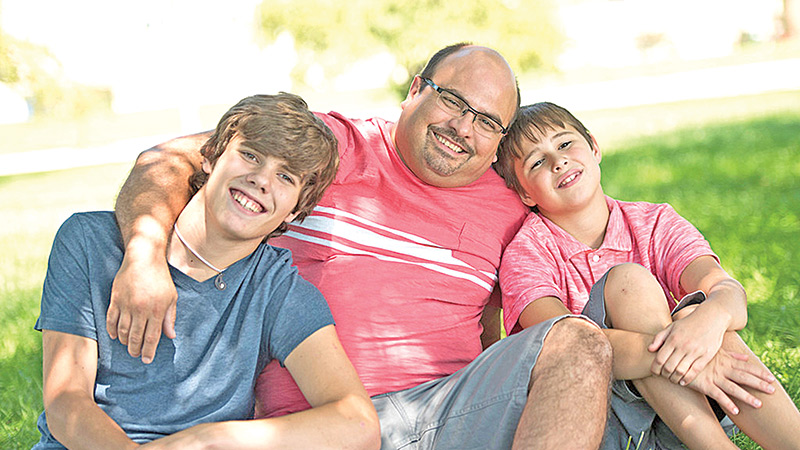The Correlation of Men’s Mental Health and Physical Well-Being

Brought to you by MERCY HEALTH
Mission of Mercy
The mission of Mercy Health has remained steadfast since the Sisters of the Humility of Mary began providing health care services more than 100 years ago. Mercy Health’s core values of compassion, excellence, human dignity, justice, sacredness of life and service are upheld at all of our care locations, blending pioneering technology and innovative equipment to provide the best care possible.
Visit mercy.com for more information or to find a doctor, location or specialty.
June marks National Men’s Health Month, opening the conversation to discuss issues men often struggle with but keep locked away.
According to the American Psychological Association, more than 30 percent of men have suffered from depression at some period in their life, a statistic not much different than women, but the stigma attached to male depression and mental health many times prevents those suffering to seek help.
“When comparing the prevalence of mental health disorders between genders,” said Mercy Health physician and board-certified psychiatrist Dr. Lewis Spirtos. “We know that females have a higher risk of being treated for depression and a variety of anxiety disorders,” said Dr. Spirtos.
Disorders that may include generalized anxiety, panic disorder or post-traumatic stress disorder.
What many people may not know or not think of is that a weakening mental state may also lead to physical issues down the line.
Regardless of gender, Dr. Spirtos says “Mental health assuredly affects physical well-being.”
The effects of mental health on physical wellness can vary.
“Psychological distress can have bodily manifestations that may lead to a variety of unexplained physical symptoms,” he said. “Inadequately or untreated mental health issues worsen long-term physical conditions such as chronic pain or high blood pressure.”
In addition, men are less likely to seek help for their mental illness.
“It is a known fact that men are less likely to seek psychiatric treatment than women,” said Dr. Spirtos adding, “I think the reasons for this are multifactorial and heavily embedded with the expectations society has on gender.”
According to Dr. Spirtos, men tend to equate seeking treatment for their mental health as a sign of weakness.
However, it can be quite the opposite in the eyes of providers and those within the individual’s support network.
“Allowing yourself to be vulnerable and reaching out for professional help is a sign of strength and courage,” Dr. Spirtos said. “Masculinity also serves as more of a deterrent to seeking treatment than a protective or preventive factor.”
In spite of the dire statistics - “It’s important to know that a wide variety of treatments are available for mental health.” Dr. Spirtos said.
The two main approaches Dr. Spirtos offers are psychopharmacology (medication) and psychotherapy which includes seeking counseling or talk-therapy.
A combination of the two in some cases may be most effective according to Dr. Spirtos.
Self-care also plays an important role in maintaining optimal physical and emotional health, and which Dr. Spirtos says includes things such as “regular sleep, a healthy diet, exercise, meaningful time with loved ones, and spirituality.”
To learn more about behavioral health services offered at Mercy Health or to schedule an appointment, visit www.mercy.com and the Mercy Health blog at www.blog.mercy.com.
 43
43
